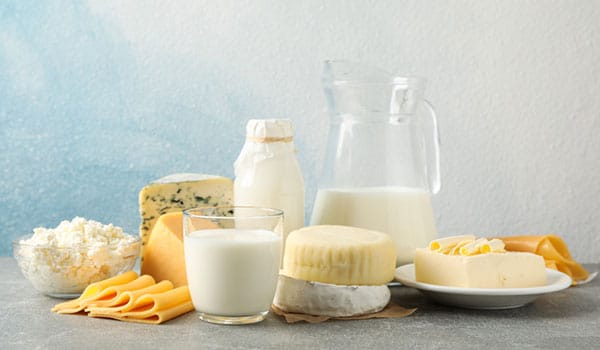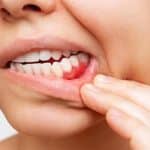Are you considering getting dental implants? If so, you’ve probably heard much about the do’s and don’ts after the procedure. One common restriction that dentists advise is to avoid consuming dairy products. But why is that?
Quick Summary
Avoiding dairy after a dental implant helps prevent potential complications like infection or disruption of the healing process.
The Importance of Dental Implants
Dental implants are an effective solution for replacing missing teeth. They restore your ability to chew and speak properly and improve oral health and appearance.
A dental implant consists of a titanium post that is surgically placed into your jawbone, serving as an artificial tooth root. This post fuses with the bone over time, providing a stable foundation for a dental crown or bridge.
What Happens After a Dental Implant Surgery?
Following the post-operative instructions provided by your dentist is crucial after dental implant surgery. This includes proper surgical site care to ensure a successful healing process. While various factors can affect the healing time, the implant typically takes several months to integrate fully with the jawbone.
Why Avoid Dairy After Dental Implant Surgery?
While dairy is generally considered a healthy part of a balanced diet, it can hinder the healing process of dental implants.
Dairy products, specifically milk and cheese, contain high levels of lactose and casein, which have been found to increase the risk of infection and inflammation around the implant site.
Let’s explore the reasons why you should steer clear of dairy after getting dental implants.
Dairy Products and Inflammation
Inflammation is a natural response of the body to injury or infection. It is a crucial part of the healing process. However, excessive inflammation can be detrimental to the healing of dental implants.
Dairy products, especially those high in lactose and casein, have been shown to promote inflammation in the body. This can lead to complications and delay the healing of the implant site.
Dairy Products and Potential Complications
Apart from inflammation, dairy products can also increase the risk of complications after dental implant surgery. The high lactose content in milk can create an acidic environment in the mouth, which can promote the growth of harmful bacteria.
This can potentially lead to infections around the implant site, jeopardizing the success of the procedure. Additionally, dairy products can be sticky and difficult to clean from the teeth and gums, increasing the chances of plaque buildup and gum disease.
Alternative Food Options After Dental Implant Surgery
Avoiding dairy after dental implant surgery doesn’t mean you have to compromise on your nutritional needs. Many alternative food options can provide you with the necessary nutrients while promoting healing and reducing inflammation.
Here are some options you can consider:
- Protein-rich foods: Opt for lean meats, poultry, fish, eggs, and plant-based protein sources like beans and lentils. These foods are essential for tissue repair and can aid in the healing process.
- Fruits and vegetables: Incorporate a variety of colorful fruits and vegetables into your diet. They are rich in vitamins, minerals, and antioxidants, promoting overall health and healing.
- Healthy fats: Include sources of healthy fats like avocados, nuts, seeds, and olive oil. These fats have anti-inflammatory properties and can help reduce inflammation around the implant site.
- Calcium-rich foods: While dairy is off-limits, you can still get calcium from non-dairy sources such as leafy greens, tofu, fortified plant-based milk, and calcium supplements if your dentist recommends them.
Tips for a Smooth Recovery After Dental Implant Surgery
In addition to avoiding dairy and incorporating alternative food options, there are several other tips you can follow to ensure a smooth recovery after dental implant surgery:
- Maintain good oral hygiene: Follow your dentist’s instructions on how to care for your implant site. This may include gentle brushing, flossing, and rinsing with an antimicrobial mouthwash.
- Avoid smoking and alcohol: Smoking and excessive alcohol consumption can hinder the healing process and increase the risk of complications. It’s best to avoid them during the recovery period.
- Stick to soft foods: Initially, stick to soft foods that require minimal chewing to avoid putting unnecessary pressure on the implant site. Gradually introduce firmer foods as advised by your dentist.
- Attend regular check-ups: Regularly visit your dentist for follow-up appointments to monitor the progress of your dental implants and address any concerns.
Consultation with Your Dentist
It’s important to remember that every individual’s case is unique. It is best to consult your dentist if you have any specific concerns or questions regarding your diet after dental implant surgery.
They can provide personalized guidance based on your specific needs and recommend any necessary dietary modifications.
Conclusion
Dental implants are a significant investment in your oral health and overall well-being. To ensure the long-term success of your dental implants, it is crucial to take proper care of them during the healing process.
It is recommended that dairy products be avoided, as they can promote inflammation and potential complications. Instead, focus on incorporating alternative food options that promote healing and provide the necessary nutrients.
Following your dentist’s instructions and making informed dietary choices can help ensure a smooth and successful recovery after dental implant surgery.



